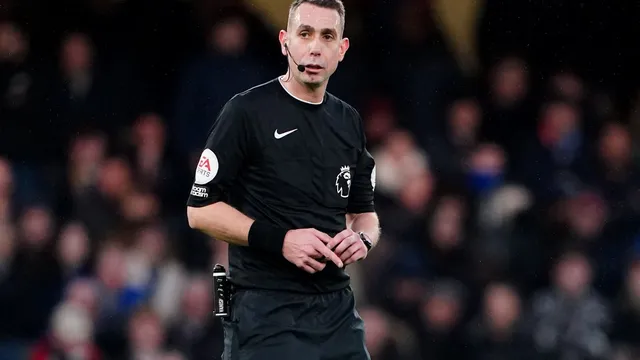
David Coote fired following derogatory remarks and drug use scandal
2025-01-30 11:59- David Coote faced severe scrutiny and was dismissed from his role after derogatory comments about Liverpool and Jurgen Klopp surfaced.
- Coote revealed his struggles with drug use and hiding his sexuality as contributing factors to his downfall.
- The incident has sparked a conversation about the mental health support for referees and the impact of public abuse.
Express your sentiment!
Insights
In an event that has drawn significant media attention, David Coote, a former Premier League referee, was dismissed in December 2024 by the Professional Game Match Officials Limited (PGMOL) following the emergence of unverified videos that showcased derogatory comments about Liverpool football club and their ex-manager, Jurgen Klopp. This dismissal came after Coote was initially suspended in November 2024 when footage surfaced of him criticizing Liverpool as 's***' and derogatorily referring to Klopp. Additionally, another video appeared to show Coote using a white powder, which raised eyebrows regarding his conduct during his time as a referee. The circumstances leading to his termination are deeply intertwined with Coote's struggles with maintaining mental health amid the pressures of refereeing at a high level and his hidden sexuality. In interviews following his dismissal, Coote revealed that fear of public scrutiny over his sexuality played a significant role in the poor choices he made, including drug use. He acknowledged that while his sexuality was not the sole reason for his actions, it significantly impacted his life and career. He stated, 'I hid my emotions as a young ref and I hid my sexuality as well.' The fallout included severe backlash from fans and the pressure of public scrutiny, which Coote described as relentless. He recounted receiving death threats and abusive messages that affected his mental health. The stress of handling these responsibilities, coupled with the abuse, led him to make 'really bad choices' in trying to cope with his feelings and circumstances. Coote expressed regret over how he handled the situation and the negative spotlight his actions brought to the sport, acknowledging the shame he feels regarding his past behavior while also hoping that sharing his experiences might help others in similar positions. Despite the challenging events, Coote has expressed a desire for understanding from the public, emphasizing that he is not defined by his poor decisions. He has taken full responsibility for his actions and has called for more compassion towards referees who are also affected by the emotional toll of their roles in high-stakes games. Coote's experiences illustrate the need for better support systems for those in the demanding world of professional refereeing, where the weight of public opinion can heavily impact personal well-being.
Contexts
Fan abuse towards referees in various sports has become a concerning issue, impacting not only the officials' mental well-being but also the integrity of the games they officiate. The intensity of fan interactions has escalated in recent years, with incidents of verbal abuse and even physical confrontations becoming more frequent during and after games. These behaviors undermine the respect for the officiating role and create a hostile environment that can lead to increased stress and burnout among referees. Reports and studies indicate that a significant number of referees consider leaving the profession due to the negative experiences they encounter from fans, which leads to a shortage of officials and diminishes the quality of officiating in sports. The repercussions extend beyond the referees; the overall atmosphere of the sport is affected as well, with potential consequences for the game itself, such as delays and a growing divisiveness among fans. Another dimension to the impact of fan abuse on referees is the psychological toll it takes. Many referees report feelings of anxiety, depression, and lower job satisfaction as a direct consequence of persistent abuse from fans. This can have a cascading effect on their performance, as they may become hesitant in their decision-making processes, leading to mistakes that could alter the outcome of a game. Referees often deal with the dual pressures of performing under scrutiny while also managing their emotional responses to ongoing abuse. The physical and emotional health of referees should thus be prioritized to maintain a healthy and fair sporting environment. Sports organizations and leagues are increasingly recognizing the need to address this issue by implementing measures to protect referees. Initiatives such as fan education programs, stricter penalties for abusive behavior, and support systems for referees are vital steps toward creating a respectful environment in sports. Engaging with fans and emphasizing the importance of respect toward referees can help reshape cultural attitudes and reduce instances of abuse. Furthermore, providing resources for referees to cope with and report incidents can empower them and potentially deter abusive behaviors from fans. Ultimately, a collective effort from leagues, teams, and fans is essential to combat fan abuse and create a more positive experience for referees. Recognizing the indispensable role that officials play in maintaining the integrity of sports can help foster an environment of respect and appreciation. As we move forward, continued advocacy and education will be crucial in reversing the detrimental trend of fan abuse, ensuring that referees can perform their duties effectively and without fear, thereby enriching the overall sporting experience for everyone.